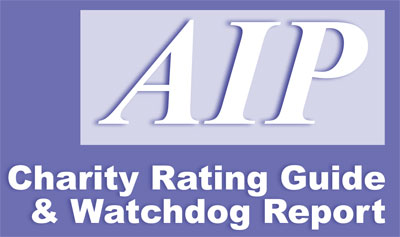They Got a ‘D’ (Times Three)
 HSUS, like any organization with good PR, loves to toot its own horn. So it was no surprise to see the animal rights group crowing recently about being ranked higher than other national animal rights/welfare groups in a Philanthropedia (now part of Guidestar) poll.
HSUS, like any organization with good PR, loves to toot its own horn. So it was no surprise to see the animal rights group crowing recently about being ranked higher than other national animal rights/welfare groups in a Philanthropedia (now part of Guidestar) poll.
At first glance, this award is probably more legitimate than the “accreditation” that HSUS’s Duchess Sanctuary received last year—but that’s not saying much. In fact, we dug a little deeper into the Philanthropedia methodology, and it turns out it’s got some issues.
And, as we’ll discuss below, it doesn’t hold a candle to more objective measures of HSUS's operations.
Philanthropedia asked about 170 professionals with experience in animal issues to rate whether certain organizations (15, in all) were effective or not. HSUS beat out the ASPCA for the top spot, with PetSmart Charities coming in third.
To observers like us, it’s unclear how Guidestar chose the experts to poll, whether through cold email or warm referral. But while many of the people Guidestar picked were animal welfare advocates, a strong contingent was from the radical animal rights fringe, including employees or board members of the following groups:
- Animal Legal Defense Fund (3 total)
- HSUS employees (4)
- Vegan Outreach (3)
- In Defense of Animals (2)
- The “Physicians Committee” for Responsible Medicine (2)
- Humane Research Council (linked to HSUS leaders)
- Animals & Society Institute
- Farm Sanctuary
- Born Free USA (3)
- The Humane League (2)
Additionally, there were:
- A PETA co-founder
- Former HSUS employees (2)
- A Vegan.com author
- An HSUS consultant
- An animal-rights law professor
- A professor who “wants to put an end to animal farming”
And this is just the low-hanging fruit. We’re sure we could find more if we dug deeper. Additionally, a number of other folks represented groups that have taken money in the past few years from HSUS.
While this set of animal-rights activists wasn’t a majority, it was a substantial voting bloc. We’re sure it skewed the results in favor of the more radical groups—just look how Farm Sanctuary, a small vegan activist group, was ranked in the top 5 of the 15 organizations.
Farm Sanctuary has similar goals to HSUS (and PETA), but is at least open about its desire to turn everybody into vegans. But it’s hard to see how the group is truly effective, judging by its past results. Several of Farm Sanctuary’s past “wins” have been to push regulations in states where there’s little to no opposition. For example, it pushed a campaign to restrict hog farming in Florida—restrictions that targeted only two farmers in the entire state. And its campaign to ban veal crates in New Jersey was equally silly—there were no veal farms in the Garden State.
And that’s not to mention that the Sea Shepherd Conservation Society is even one of the 15 groups selected. The Sea Shepherds, if you aren’t familiar, are a pirate group operating on the high seas. (Great…)
In a more general sense, the “effectiveness” ratings aren’t really an objective measure because they rely on opinions of many fringe activists. Instead, there’s a much more tangible measure.
The respected American Institute of Philanthropy (which runs CharityWatch.org) analyzes publicly reported information from a set of charities, including HSUS.
Last year, AIP gave HSUS a “D” grade—twice. And we just got AIP’s latest charity report in the mail. And once again, HSUS gets an unsatisfactory “D” grade. (Even PETA gets a “C-plus.”)
AIP finds that HSUS spends up to 49 cents to raise every dollar—remarkably inefficient fundraising. Additionally, AIP finds that HSUS spends as little as 49 percent of its budget on programs.
This is similar to the findings of Animal People News’ recent Watchdog Report, which analyzed HSUS’s 2008 tax return and found that up to half of HSUS’s budget is spent on overhead costs.
What’s more trustworthy—essentially a subjective popularity contest, or an objective charity watchdog report? You decide for yourself, but to us the numbers don’t lie.



